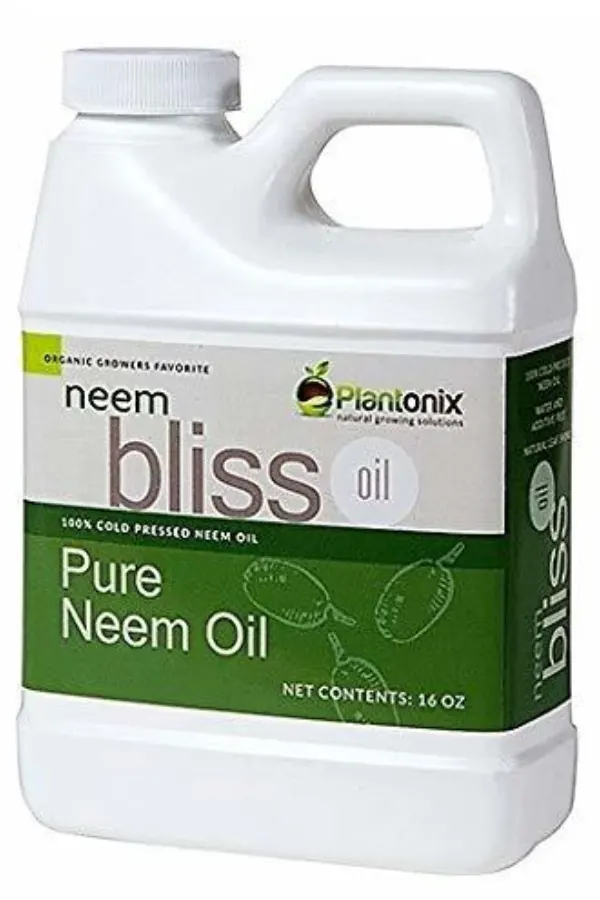If you are looking for an all natural, organic solution for protecting your plants – using neem oil just might be the answer! Today’s article is all about the many benefits of using neem oil, and how to make your own homemade spray to use on plants.
Neem oil is made by pressing the seeds from within the fruit of the neem tree. And that oil has some pretty amazing qualities when it comes to controlling pests and disease. Even more, it can do so while keeping many other living creatures safe.
Unlike man-made pesticides and many natural-based pest remedies, neem oil does not pose a danger to nearly everything it comes in contact with.
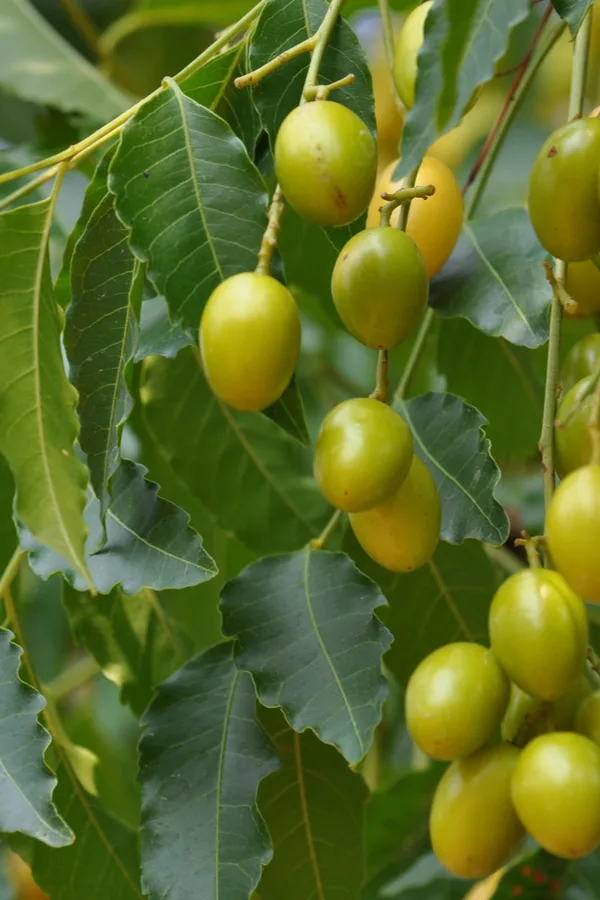
In fact, although neem oil helps control many common garden pests like aphids, mites, beetles, whiteflies, moths and more, it thankfully does not harm important pollinators.
Beneficial pollinators such as bees, ladybugs and butterflies suffer no ill-effects from the oil. Nor are birds, pets or humans. And that alone makes it one of the best choices around when controlling garden and flower pests becomes a necessity.
How Neem Works
Neem oil is certainly not new in the world of organic pesticides. It was actually the first choice for many farmers back before synthetic pesticides became widespread.
And now that many worry about the dangers of the man-made versions, it has come back in as a great all-natural solution for many pest and disease issues.
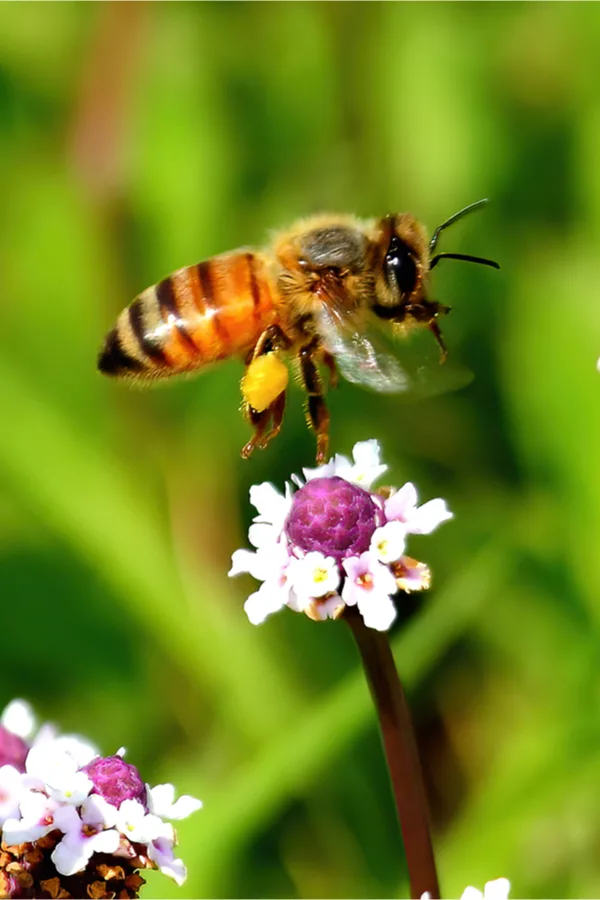
As an insecticide, neem oil works by disrupting the life stages of the insects it targets. The oil contains a highly active compound called azadirachtin. And azadirachtin can all but disable an insect’s ability to eat, mate and lay eggs. The result of which can stop an infestation in its tracks.
But the oil also has an ingredient that has the ability to protect plants, trees, and bushes from disease. Protection from mildew, rust, leaf spot and scab can all occur by applying neem oil.
For these very qualities, neem oil is often sprayed early in the growing season on berry bushes, fruit trees, and grape vines. Not only can it help prevent debilitating diseases, it can of course also keep insects off of the plants as well.

Using Neem Oil – When & Where
So what all can this magical oil help protect? Well, the list is long for sure! As a general pest insecticide, you can mix and spray it on the foliage of vegetable plants, annuals, and perennials. It also works extremely well on trees, vines, and shrubs.
For controlling pests on annuals, vegetables, and perennials, spraying should occur every few weeks for maximum effect. For most insects, spraying the oil at any point in their life cycle will result in good control.
That is a huge plus when dealing with infestations of aphids or whiteflies. It not only controls the adults that are currently damaging your plants, but it can wipe out larvae and eggs. Talk about eliminating future issues all at one time!
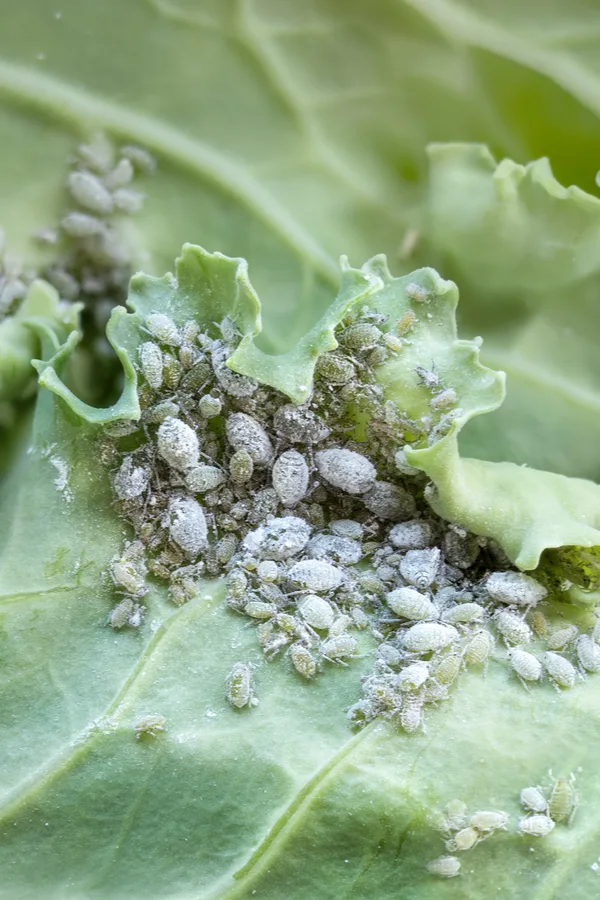
The one exception is in dealing with Japanese beetles. Neem oil is much more effective at controlling the larvae and egg production of Japanese Beetles than the adult population. For this reason, it is important to use it early on against young beetles before they have the chance to mate.
Using Neem Oil On Fruit Trees, Lawns & More – Protecting Against Pests & Disease
Neem Oil can also be quite effective in helping to control fungal issues, disease and pests on fruit trees.
You can spray neem in the dormant months on trees to help prevent scab, rust leaf spot, black spot, leaf spot and more. Again, all without the worry about harming beneficial insects at the same time.
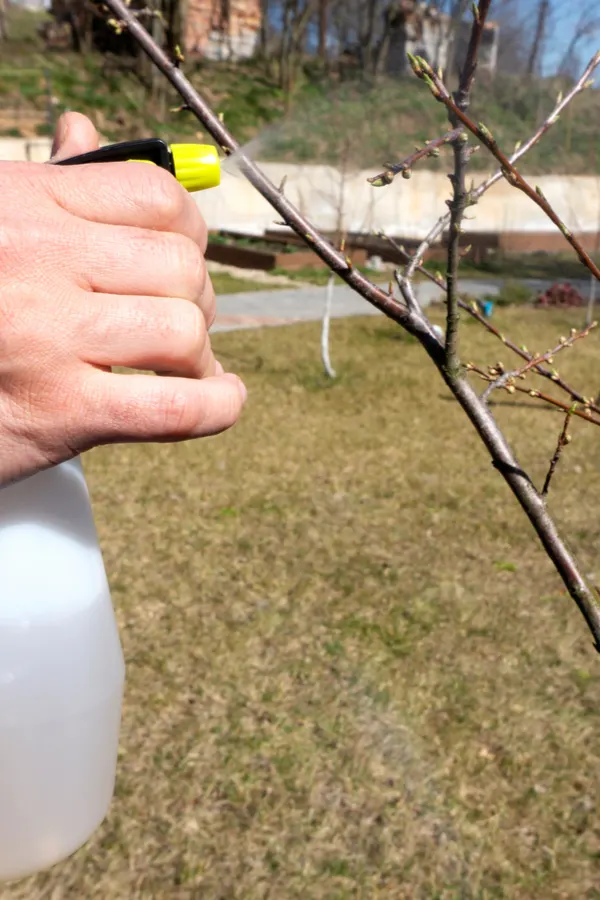
In addition, you can spray neem oil on the soil to help control nematodes, and grub worms as well. In fact, neem is an excellent all-natural solution for those looking to rid their yards of ground moles. After all, once you eliminate the ground moles food source (grubs), they won’t stick around for long!
How To Make & Apply Neem Oil
Creating an effective Neem pesticide can occur with just 3 simple ingredients. All it takes is pure neem oil, water, and a few drops of dish soap. The dish soap works to help the substance cling to foliage and branches as spraying occurs.
Be sure you select a pure neem oil product. This will be entirely organic and should carry the OMRI seal as a verified organic product. We use and have had a lot of success with Neem Bliss, and it is 100% pure and carries the OMRI seal. Product Link : Pure Neem Bliss
To mix, use one (1) ounce of neem oil for every gallon of water. Add in a few drops of liquid dish soap to the mix and stir. The dish soap helps allow the mixture to adhere to the foliage and stems of plants, acting as an oil agent.
For large areas a backpack sprayer works wonders to quickly treat an entire area. For more specific targeting, a hand-help spray bottle works wonders to treat small plants or areas.
One thing is for sure, neem oil can certainly play a big role in keeping your garden free of pests naturally. For more methods of natural pest control, be sure to check out our Pest Control Section on the website. The section contains all types of natural solutions for controlling pests all over the landscape.
Follow Our Facebook Page For Great Gardening Tips And Advice! This Is My Garden Facebook Page
This Is My Garden is a garden website created by gardeners, for gardeners. Jim and Mary Competti have been writing gardening, DIY and recipe articles and books and speaking for over 15 years from their 46 acre Ohio farm. They publish three articles every week, 52 weeks a year. Sign up today to follow via email, or follow along!


